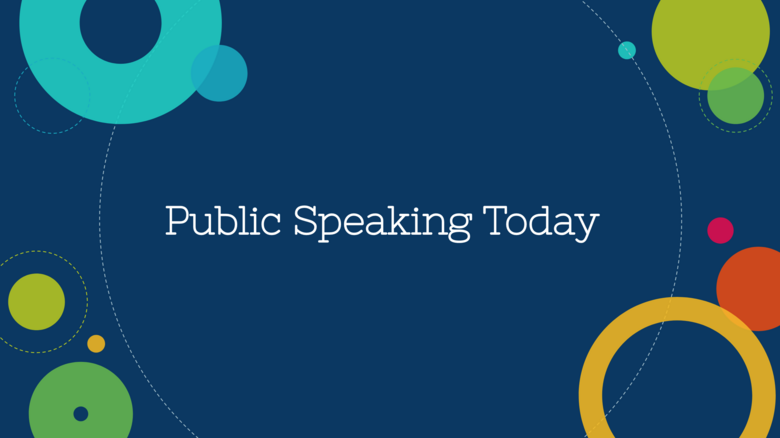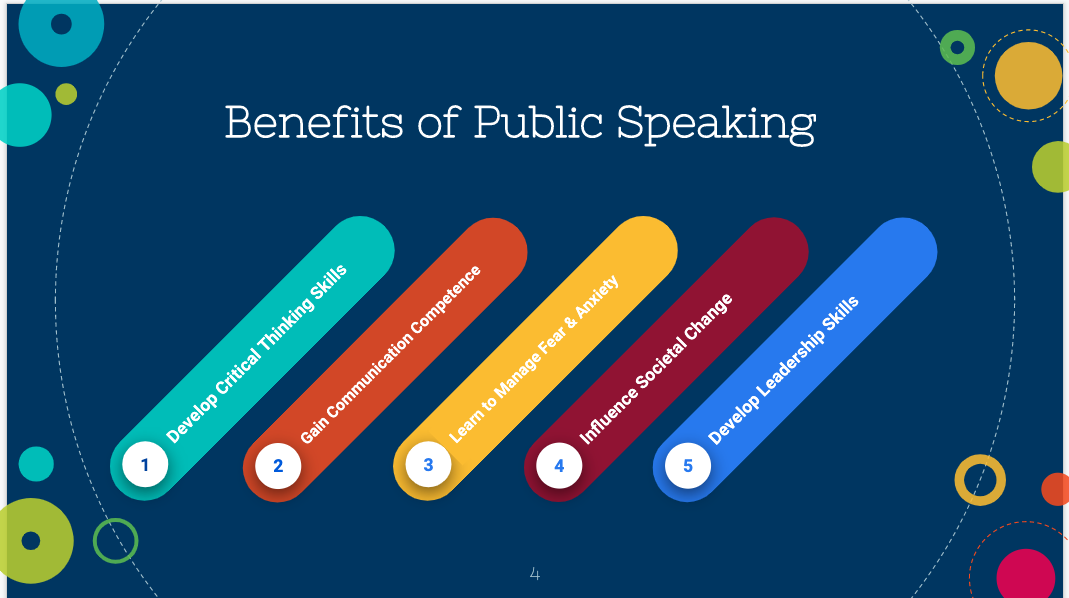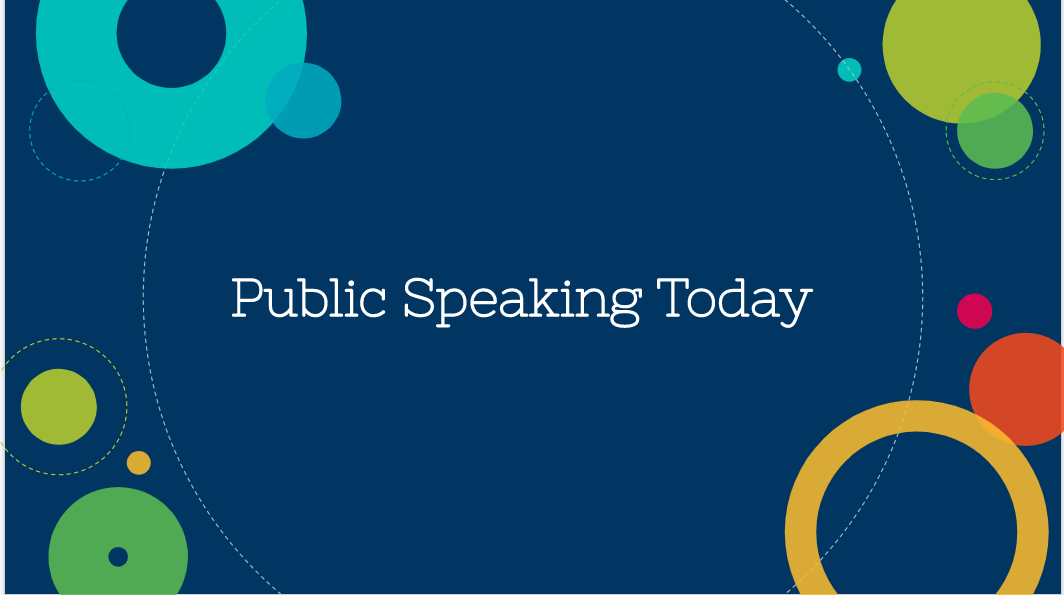Public Speaking Today Resources

Overview
There are many important reasons to study public speaking. This opening section explores public speaking in the modern age as well as the many benefits associated with becoming a competent speaker. This section also explains the process of public speaking and the different models of communication. Ethics is explored as well as the ethical choices public speakers and listeners must make. Last, this section introduces the National Communication Association’s Credo for Ethical Communication as well as the First Amendment to the U.S. Constitution in relation to free speech.
Learning Objectives
Understand the importance and relevance of public speaking today
Understand the many benefits associated with becoming a competent speaker
Understand the foundations of communication
Understand and apply ethics in the context of public speaking
Recommended Textbook Resources
Stand Up, Speak Out: The Practice and Ethics of Public Speaking
Chapter 1 - Why Public Speaking Matters Today
Section 1.1 Why is Public Speaking Important?
Section 1.2 The Process of Public Speaking
Chapter 2 - Ethics Matters: Understanding the Ethics of Public Speaking
Section 2.1 The Ethics Pyramid
Section 2.2 Ethics in Public Speaking
Section 2.3 Free Speech
This collection of chapter sections discusses the basics of public speaking today as well as the ethics of public speaking. These sections were selected by the team for their comprehensive topic coverage; clear, engaging language, thorough supporting sources from some of the leading scholars in the field; and of course, the publisher’s commitment to open educational resources.
Stand Up, Speak Out: The Practice and Ethics of Public Speaking
Chapter 1 - Why Public Speaking Matters Today
Section 1.1 Why is Public Speaking Important?
Section 1.2 The Process of Public Speaking
Chapter 2 - Ethics Matters: Understanding the Ethics of Public Speaking
Section 2.1 The Ethics Pyramid
Section 2.2 Ethics in Public Speaking
Section 2.3 Free Speech
This collection of chapter sections discusses the basics of public speaking today as well as the ethics of public speaking. These sections were selected by the team for their comprehensive topic coverage; clear, engaging language, thorough supporting sources from some of the leading scholars in the field; and of course, the publisher’s commitment to open educational resources.
Supplemental Content/Alternative Resources
- Personal, Professional, and Societal Benefits of Studying Public Speaking (Video)
- The Importance of Public Speaking Today (Video)
- Defining Communication and Communication Models (Video)
- Understanding the Contexts (Levels) of Communication (Video)
- What is Communication & Historical Perspective on the Discipline - National Communication Association
- National Communication Association Credo for Ethical Communication (PDF)
- National Communication Association Credo for Free and Responsible Communication in a Democratic Society (PDF)
PowerPoint Slides

Topic Application Section
Similar and Different: An Ice-Breaker Activity That Builds Community (This work is licensed under an Attribution-NonCommercial-ShareAlike 4.0 International (CC BY-NC-SA 4.0) License.)
Impromptu Speech Activity - Two Birds, One Stone: Harnessing Apprehension and Diminishing Technological Intrusions
NOTE: Off campus users will need to find this document through their library's database.
End of Section Review
Topic Summary
There are a variety of personal, professional, and societal benefits associated with becoming a competent public speaker. From developing critical thinking skills to helping reduce the fear and anxiety of public speaking, studying public speaking is a worthwhile endeavor. The models of communication explored in this section provide a useful foundation for understanding communication and its basic concepts. Last, the National Communication Association’s Credo for Ethical Communication helps speakers understand the role of ethics by presenting core ethical principles to consider during the public speaking process.
Key Terms
- Verbal Communication
- Nonverbal Communication
- Source
- Channel
- Receiver
- Message
- Encoding
- Decoding
- Feedback
- Context
- Physical
- Temporal
- Social-psychological
- Cultural
Ethics
Intent
Means
Ends
Plagiarism
Distortion
Free Speech
Review Questions
- What are the benefits of studying public speaking?
- What are the most common types of public speaking?
- Explain the transactional model of public speaking
- How can the four dimensions of context influence a speech?
- What are the principles of dialogic theory?
- Identify and define the three concepts of Tilley’s (2005)ethics pyramid.
- What questions does Tilley (2005) suggest you should you ask yourself when thinking about the ethics of a particular behavior?
- What is the Latin root of the word plagiarism and what does plagiarism mean today?
- What are the three main plagiarism traps?
- Explain distortion and its relevance to ethics in public speaking.
- What is “free speech” and how does it relate to the U.S. constitution?
Critical Thinking/Discussion Questions
- What does it mean to be a competent communicator?
- In your opinion, what is the most important benefit of taking a public speaking class?
- In what ways can studying public speaking help you develop critical thinking skills?
- Compare and contrast the models of communication.
- How would you define “ethics” and was does it mean to make ethical choices as a public speaker?
